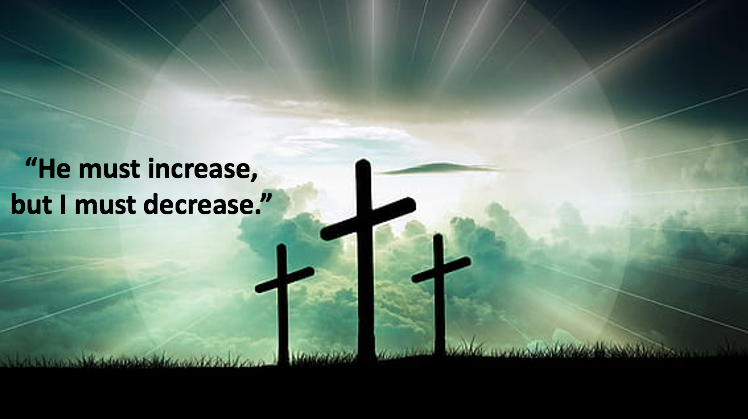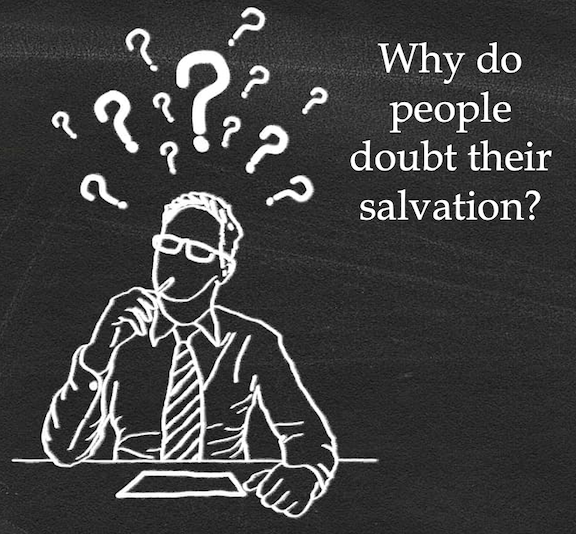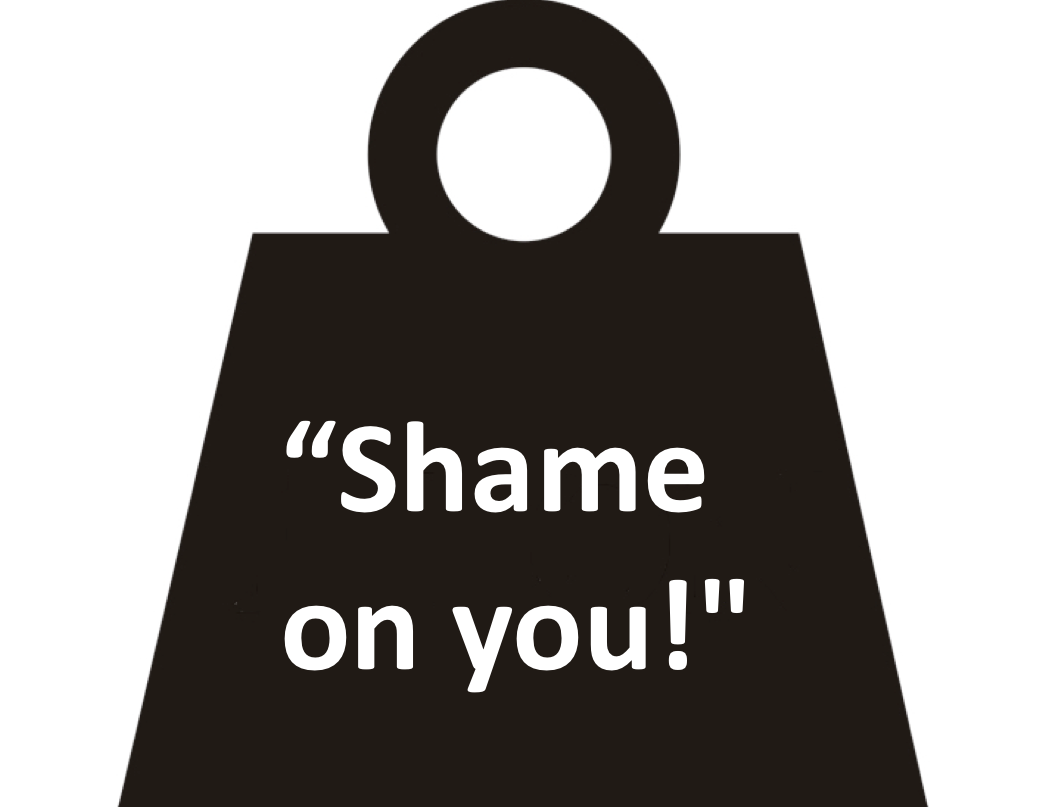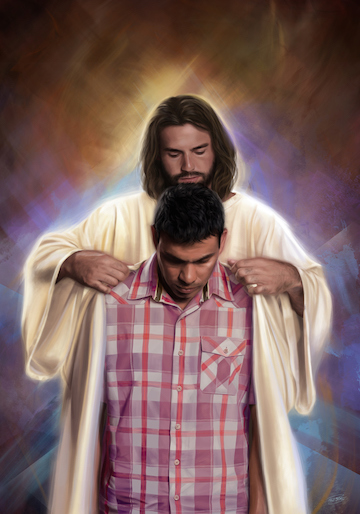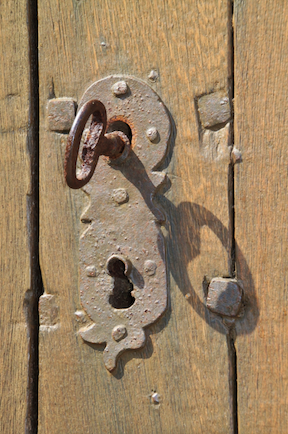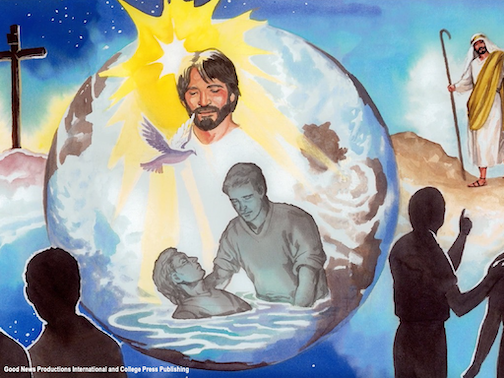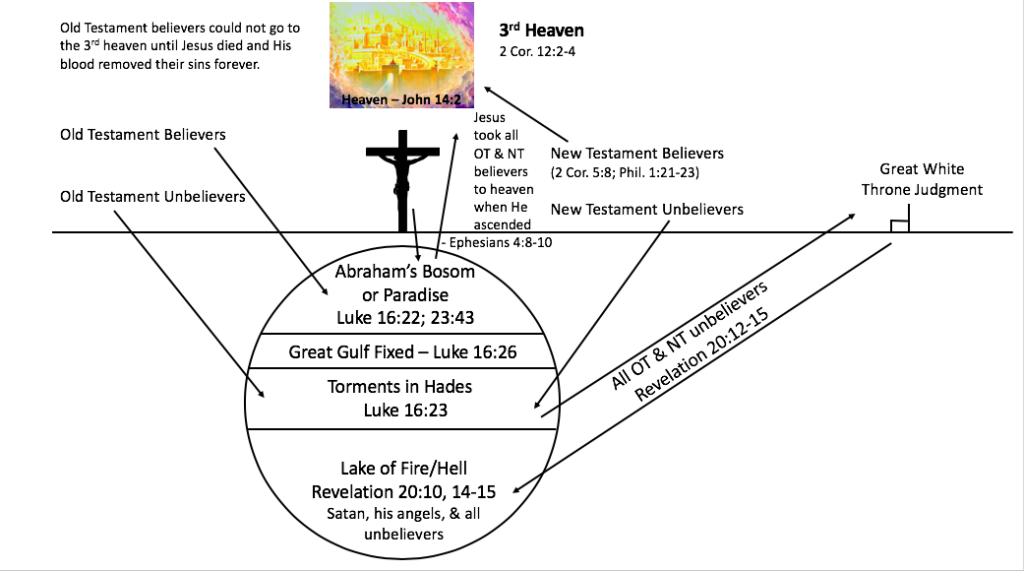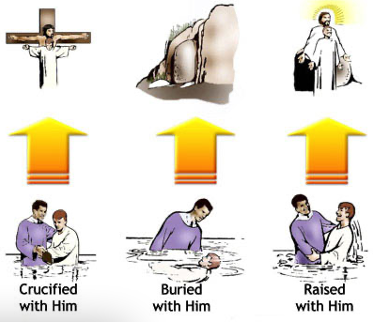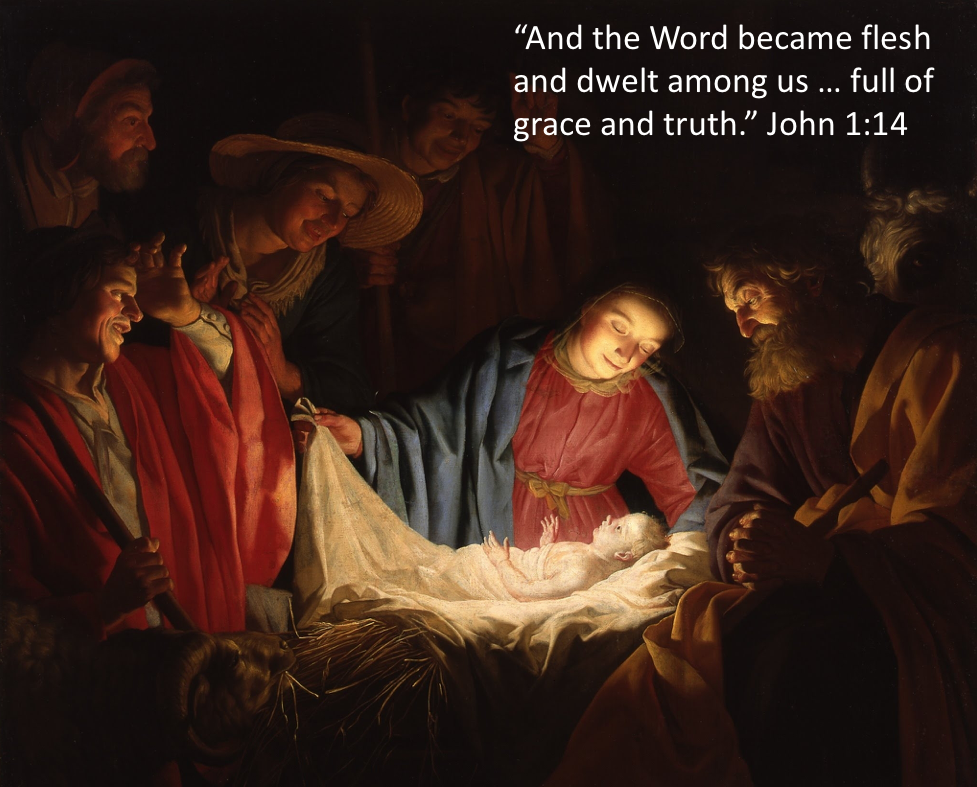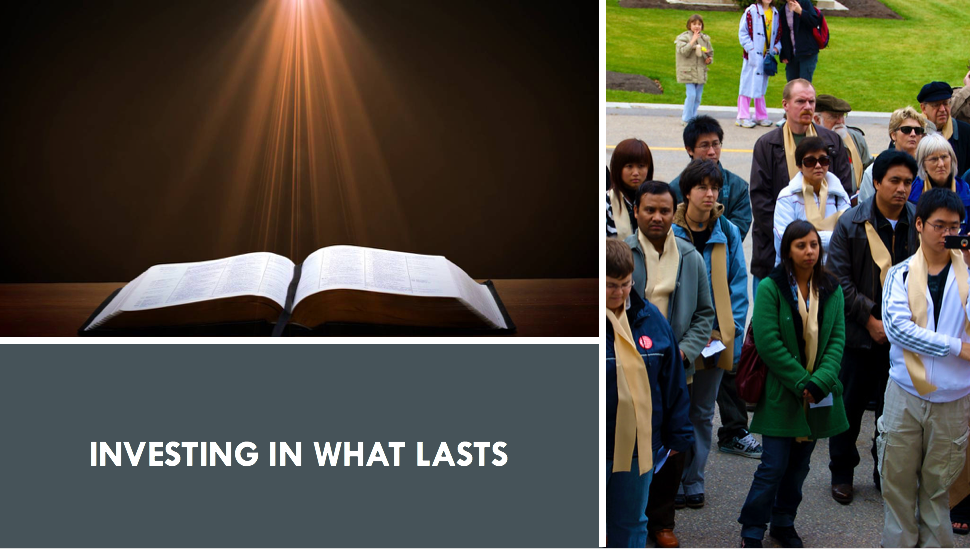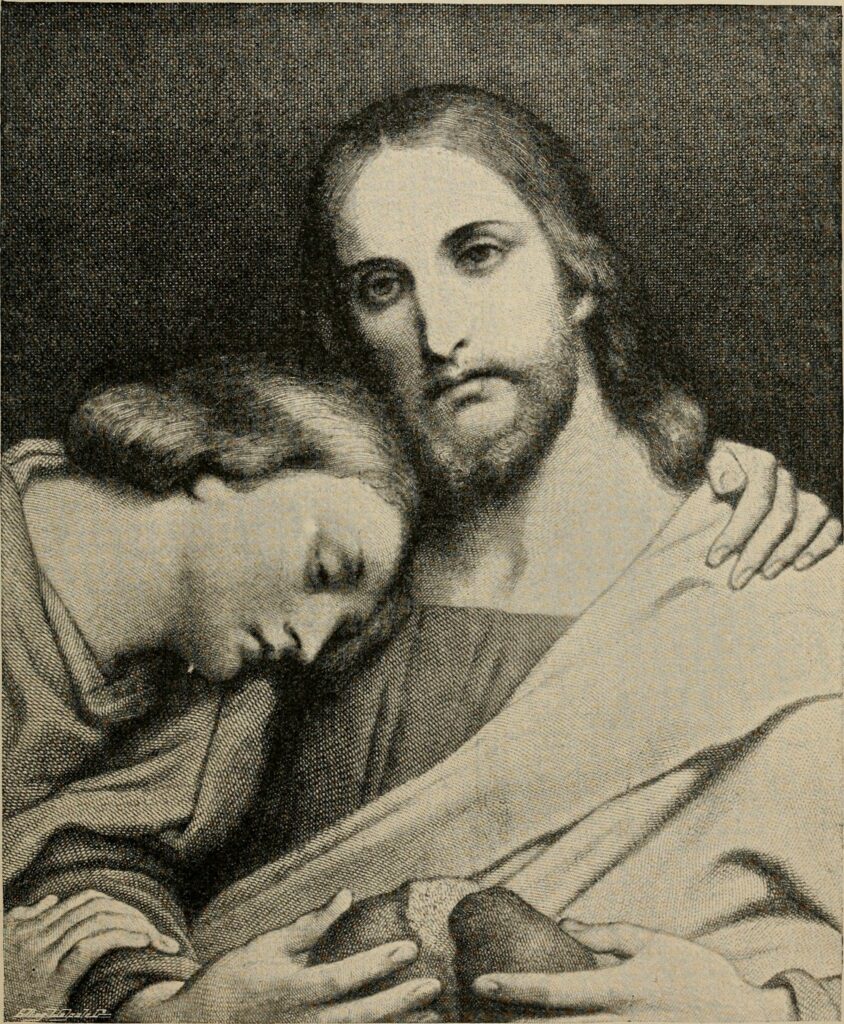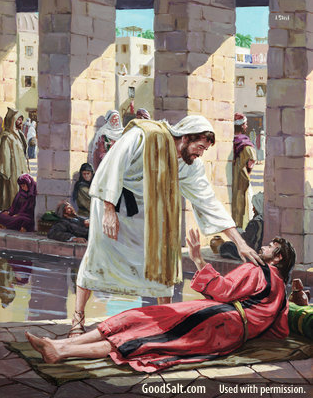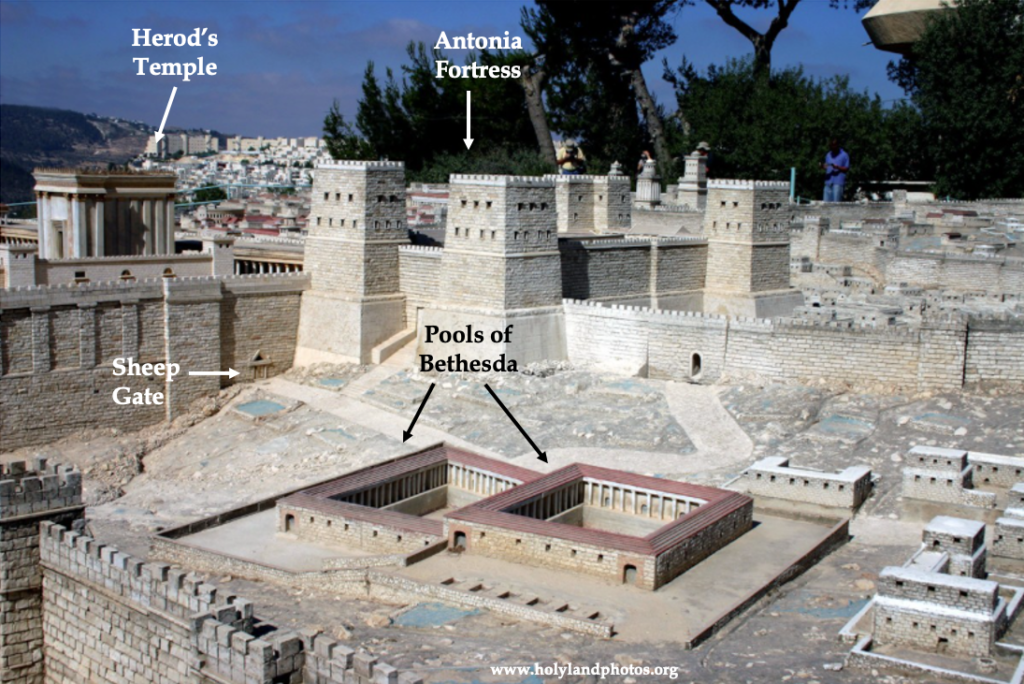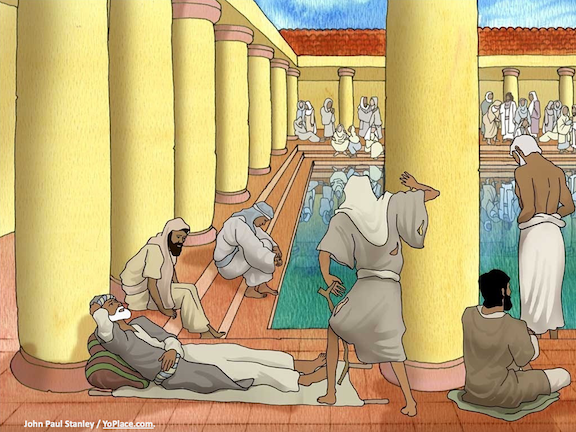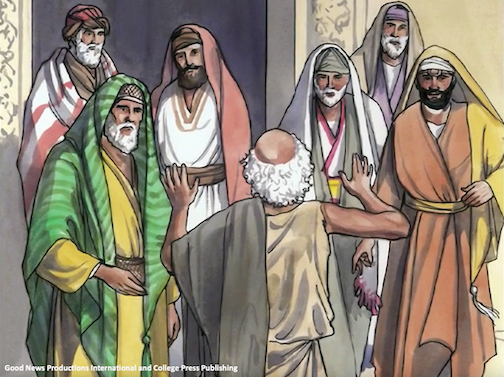“He must increase, but I must decrease.” John 3:30
Muhammad Ali once said to Mark McCormack, “I’m more famous than Jesus Christ.” Recounting the incident in his book, What They Don’t Teach You at Harvard Business School, McCormack remarked, “I was appalled at the statement, dismissed it as braggadocio, and let it go at that. But months later for some reason I got to thinking about it and started counting up all the Muslim, Hindu, and other non-Christian countries in which Ali was extremely well known. The statement was still braggadocio, but I realized it was also probably true.” [1] The tragedy was not just that Muhammad Ali was arrogant, but it’s that he was probably accurate.
What about in the region where you live? Is Jesus more popular among the people of your town, city, or state than the Mormons, Jehovah Witnesses, Muslims, or Hindus? Is He more popular than your governor or favorite celebrity or athlete?
In this chapter, we are going to talk more about vision. Vision is a picture of what God wants us to be and do. In this year, I believe God wants Jesus Christ to become more well-known where you and I are living. So, we are going to talk about how Jesus Christ can become more popular where we live. In doing so, we will discover three ways in John 3:22-36 how Christ can grow in prominence in our area. THE FIRST WAY FOR JESUS TO BECOME MORE POPULAR is for us to…
RESPOND TO GOD’S BLESSING ON OTHERS WITH HUMILITY (3:22-27). 3:22: “After these things” refers to Christ’s conversation with a religious leader named Nicodemus where He stressed that faith alone in Christ alone is the only way to heaven (3:5-18). If Jesus’ conversation with Nicodemus took place in Jerusalem, then the reference to Christ coming “into the land of Judea” probably refers to the Judean countryside. [2] While in this remote place, Jesus begins to develop new believers into His disciples. A disciple is a devoted follower of Jesus. Once a person believes in Christ to get to heaven, he is then initiated into the discipleship process through water baptism (Matt. 28:19-20; Mark 16:15).
Look at the phrase, “He remained with them.” This was an unhurried period that Jesus had with these new believers. They are getting to know each other. Being the Lord’s disciple meant you were with Him. You spent time with Him. New birth or getting to heaven is by believing in Christ alone (3:5-18), but discipleship involves being “baptized” with water and instruction (3:22; cf. Matt. 28:19-20). In all nations, God wants to expand His church through the discipleship process whereby older Christians meet with younger Christians one on one or in small groups to reproduce devoted followers of Christ. This is God’s only plan for increasing Jesus’ popularity around the world (cf. Matt. 28:19-20; 2 Tim. 2:2).
Jesus was not the only one baptizing. 3:23: While Jesus baptized downstream, “John“ the Baptist was baptizing “in Aenon” (Ainōn) which means “springs” [3] “near Salim,” a Hebrew and Arabic term meaning “peace.” [4] At this location there were seven springs within a quarter mile radius which meant there was plenty of water to baptize by immersion. [5] The exact location of “Aenon” is not known today. [6]
“The best evidence seems to point to a site just south of Scythopolis (Old Testament Bethshan) … about 15 miles south of the Sea of Galilee.” [7]
“The other possible site was a few miles east of Sychar (near Old Testament ‘Shechem’) … approximately midway between the Sea of Galilee and the Dead Sea. Both plausible sites are only a few miles west of the Jordan River.” [8]
While the exact location of John’s baptizing ministry cannot be determined today, it is important to recognize that the Baptist moved from the south to the north, leaving Jesus to baptize closer to Jerusalem [9] (see map).

3:24: John notes that John the Baptist “had not yet been thrown into prison” yet. The apostle John is the only gospel writer to inform us that “between Jesus’ temptation and John the Baptist’s arrest, John and Jesus baptized at the same time. His reference to John the Baptist’s imprisonment is important because it helps the reader to see that John’s account does not contradict the Synoptics. Yet his primary concern was John the Baptist’s witness for Jesus.” [10]
John’s baptism of repentance prepared people to believe in Jesus. “Then Paul said, ‘John indeed baptized with a baptism of repentance, saying to the people that they should believe on Him who would come after him, that is, on Christ Jesus’” (Acts 19:4; cf.John 3:36).
3:25: John the Baptist’s disciples found themselves at a disadvantage in “a dispute” with “the Jews about purification.” These “Jews” were asking why they should participate in John’s ceremonial washing (baptism) when Christ’s following was larger. [11] It seems as those these interrogators sought to generate a division between John the Baptist and Jesus. Both ministries were inviting people to believe in Jesus as the promised Messiah (cf. John 1:7, 41, 49-51; 2:11; 3:15-18, 36; cf. Matt. 21:25, 31-32; Mark 1:15). The Judeans feared that if these two ministries remained united, their message would sweep through the entire nation. The ones who sought to divide these ministries directed their attack towards John the Baptist. [12]
3:26: The “they” may refer to the Baptist’s disciples [13] or to the Judeans who disputed with them. [14] In the context, it makes more sense to me that the Baptist’s disciples “came to John” expressing jealousy towards Jesus’ growing popularity. John’s ministry was dwindling, and Jesus’ ministry was advancing. Notice that they don’t refer to Jesus by name. They say, “He who was with you… to whom you testified… He is baptizing… all are coming to Him.” They are complaining. “John, you did Him a favor by telling others about Him and now He is taking all of your followers.” These men were loyal followers of John the Baptist. They longed for the former days when everyone was coming to listen to their leader. Now this new guy comes into town, and they didn’t like it one bit. To them it was competition.
Can you relate to John’s disciples? When God blesses another ministry near you, do you ever find yourself asking God why they have more people coming to Christ than you do? Do you find yourself comparing the size of your church with other churches? Instead of thanking God for their growth, you wish you had that many people! Or when God blesses an individual believer in your church, do you find yourself feeling jealous of that person? You compare yourself to him or her and think you should have more blessings than them because you are more deserving? If we are honest with ourselves, we have all had these kinds of thoughts and feelings.
How did John the Baptist respond to Jesus’ growing popularity? 3:27: John’s pride was not wounded like his disciples’ were. [15] He understood that any ministry comes “from heaven,” whether it be his or Jesus’ ministry. He realizes that heaven determined that Jesus’ ministry would grow and his would decrease now. More people were coming to Christ because God was bringing them. It was God’s plan for John to prepare the way for Christ and that was all. John humbly accepted God’s plan for him to decrease in popularity and for Jesus to increase in popularity now.
“Everything belongs to the Lord and He has the sovereign right to give or take as He desires, including authority to lead. Because all authority derives from God’s sovereign choosing, no leader can legitimately claim any entitlement to his or her position. Those who claim to exercise authority by ‘divine right’ fail to acknowledge their duty to God and become guilty of pride.” [16]
God is the One who determines the size of a ministry. Therefore, there is no basis for jealousy over another’s opportunity or ministry. Our responsibility is to be faithful to what God has called us to do (cf. I Cor. 4:2). You and I can receive nothing unless it has been given to us from heaven. So, we don’t have to concern ourselves with the size or popularity of our church or our ministries. Thank God for using all kinds of churches and individual believers to reach the lost for Christ!
If we are going to see Jesus become more popular where we live, we must not allow any room for jealousy or competition among different churches or ministries. The spirit of competition causes Christians to compare themselves with what God is doing in another person’s life. No one in our community wants to be a part of that. People in our community want to be a part of churches that are working together and praying for each other. After all, we are on the same team and we want to see God bless all the Bible-believing churches in our area and beyond because it is not about us, it is about Jesus Christ and seeing Him grow in popularity. So, Jesus will become more popular where we live as churches and individuals respond to God’s blessings on others with humility. The second way for Jesus to grow in popularity is to…
REJOICE IN ATTRACTING OTHERS TO JESUS EVEN AT YOUR OWN EXPENSE (3:28-30). 3:28: John reminds his disciples that they already heard him explain that he was only a forerunner (“I have been sent before Him”), and not the Messiah himself (“I am not the Christ”; cf. 1:7-8, 15, 20, 23).God’s plan for John was to prepare people for Jesus’ ministry (cf. Acts 19:4). It was God’s plan now for Jesus to increase in prominence and for John to decrease in prominence. Jesus’ growing popularity was in part due to John doing his job so well. Rather than seek the limelight for himself, John was content to be an instrument to glorify Christ.
The Baptist then refers to the wedding customs of his day to support this fulfillment of his joy. 3:29: In the first century, “the friend of the bridegroom” was an assistant, not the main participant in a wedding. He was responsible for making wedding arrangements and waiting for the groom to return with his bride to the groom’s house for the wedding banquet. The friend of the bridegroom did not expect to take center stage.
“The ‘friend of the bridegroom’ in ancient Near East culture held considerably more responsibility than the ‘best man’ today. In addition to helping the bridegroom prepare his home for the eventual day when the bride would come to stay, he helped direct the wedding feast at the end of the betrothal period. His most significant duty was to guard the bridal chamber during the feast, especially after the bride had slipped into the room unnoticed by the guests. No one except for the groom was allowed to go near the bridal chamber. When the ‘friend of the groom’ heard the groom’s voice, he stood aside. His joy was complete when the groom arrived.” [17]
With this comparison in mind, John rejoiced fully in Jesus’ success. John was simply the “friend of the bridegroom,” but Jesus is “the bridegroom.” [18] In effect John says, “When I see crowds of people leaving me and going to Jesus I am thrilled because Jesus can do for them what I could never do. For their sakes and His, I rejoice!” He says, “It fills my heart with joy to see them leaving me and going to Jesus.” And a heart full of joy has no room for jealousy. [19]
3:30: Some have misunderstood this verse to mean that you must die to yourself and that there be less and less of you so that there can be more and more of Christ in you. But in the context, what John means here is that Jesus “must increase” in popularity and he “must decrease” in popularity. After all, John was the forerunner; Christ was the promised Messiah-God. If he was preparing the way for the Messiah, then surely the Messiah would need to be better known than the forerunner.
“John was simply the opening act, expected to warm up the crowd and then get off the stage. Jesus was the main event, the star attraction. John’s job was to point to and glorify the Messiah. And that’s our job too. John was content with and grateful for his role. Are you?” [20]
Don’t we want to see this where we live? Don’t we want to see Christ grow in popularity in our communities? Don’t we want to see more people in our community talking about Jesus Christ and what He is doing in and through our churches? Don’t we want to hear our neighbors and co-workers talking more about Jesus? Are we willing to set aside our own preferences to attract more unbelievers to Jesus? With God, all things are possible. The third way Jesus can become more popular where you live is to…
REVEAL JESUS’ GREATNESS TO OTHERS (3:31-36). The reason why Jesus must increase in popularity is because He is far greater than any other person who has ever walked on this earth. HIS GREATNESS IS SEEN IN…
1. HIS ORIGIN. 3:31: The apostle John’s purpose in writing his gospel was to show that Jesus is the Christ, the Son of God (John 20:31) partially by emphasizing Jesus was “from above.” Being born “from above” (3:3, 5-6) can only take place by believing in Jesus (3:15-16) Who is “from above.” [21] Christ comes “from heaven.” His origin was heavenly. Finite people like John the Baptist have an “earthly” origin. They can only reveal things about their experience on earth. But Jesus can reveal things about His experiences in heaven because that is where He is from. Every human teacher has limited knowledge about heaven, but Jesus knows all about heaven and how to get there because He lived there before coming to earth. Because of His heavenly origin, Jesus is “above all” others. Other religious leaders and teachers are trying to tell us how to go where they have never been. But Jesus is unlike any other teacher – He has lived in heaven and can teach us about it as we shall now see…
2. HIS TEACHING. 3:32: Jesus can teach with authority about heaven because He has firsthand experience and observation of it. He teaches what He had previously “seen and heard” while fellowshipping with God the Father in heaven, and therefore His teaching is trustworthy. In a court of law, second and thirdhand information is not nearly as reliable as firsthand information. But even though Jesus’ teaching is reliable, “no one” from the Jewish authorities who came to question Jesus “receives His testimony.” [22]
But some people did receive Jesus’ message. 3:33: Every time someone “received” Christ’s (God’s) “testimony,” they have “certified” or attested that God’s Word is reliable and “true.” The verb translated “certified” (esphragisen) is used of seals in John’s day.
“Seals indicated a personal guarantee, as well as denoting ownership (cf. 6:27). They also made secure (Matt. 27:66) and concealed (Rev. 22:10) things. Jesus so exactly revealed God’s words, that to believe Jesus is to believe God, and to disbelieve Jesus is to disbelieve God (cf. 1 John 5:10).” [23]
The reason the words Jesus spoke were “true” and trustworthy is given in the next verse. 3:34: Jesus is referred to by the apostle John as the One “whom God has sent.” Thirty-nine times the gospel of John refers to Jesus being sent from God [24] to demonstrate that Jesus is God and has a heavenly origin. [25]
In the past, God’s messengers had a limited “measure” of God’s Spirit. “Old Testament prophets had the Spirit only for limited times and for limited purposes.” [26] But God has given Jesus “the Spirit” without limits which guarantees that Christ’s words are precisely “the words of God.” [27]
“The Spirit descended on Jesus at His baptism and remained on Him (1:32-33; cf. Isa. 11:2; 42:1; 61:1). God gave His Spirit without measure only to Jesus (cf. 1 Cor. 12:4- 11).” [28] Hence, Jesus’ words are God’s words and therefore they are authoritative and trustworthy because He has the full endowment of the Spirit.
Historian Philip Schaff described the overwhelming influence which Jesus had on subsequent history and culture of the world. “This Jesus of Nazareth, without money and arms, conquered more millions than Alexander, Caesar, Muhammad, and Napoleon; without science… He shed more light on things human and divine than all philosophers and scholars combined; without the eloquence of schools, He spoke such words of life as were never spoken before or since, and produced effects which lie beyond the reach of orator or poet; without writing a single line, He set more pens in motion, and furnished themes for more sermons, orations, discussions, learned volumes, works of art, and songs of praise than the whole army of great men of ancient and modern times.” [29] There has never been a greater teacher than Jesus Christ. Christ’s greatness is also seen in…
3. HIS GIFT. Why has God the Father given Christ the Spirit without limit? 3:35: Because “the Father loves the Son, and has given all things into His hand.” The Father’s love for His Son which was declared at Jesus’ baptism (Matt. 3:17), guarantees Jesus’ authority to give eternal life. Because of the exalted position (“whom God has sent… given all things”) and Person (“from heaven… above all”) of His Son (3:31-35), the Father expects people to believe in Him, and when they don’t, the consequences are permanent.
3:36: We see two very different eternal destinies in this one verse. Those who “believe in the Son” have “everlasting life.” Those who do “not believe the Son shall not see life.” What does it mean to “believe”? The word “believe” (pisteuō) means to be “persuaded something is true and therefore worthy of one’s trust.” [30] Are you persuaded that John the Baptist was speaking the truth when he said, “He who believes in the Son has everlasting life; and he who does not believe the Son shall not see life, but the wrath of God abides on him”? If you now believe in the Son, Jesus Christ, then according to God’s Word, you now have “everlasting life.” You can experience “life”with Jesus both now and forever.
The phrase “he who does not believe the Son,”[31] could also be translated,“he who does not obey the Son.” [32] Refusal to believe the Son’s testimony about Himself is a refusal to “obey” the Father Who sent Him and Who expects people to believe in Him. To disbelieve God’s Son is to disobey the commandment to believe in Him (cf. I John 3:23a). “One cannot refuse the testimony of an Exalted Person like Jesus without rejecting the very words of God.” [33] Disobeying God’s command to believe in His Son for eternal life is the only unforgiveable sin and therefore deserves the greatest consequence – God’s “wrath” (orgē) or anger abiding on him or her forever.
“A God of love must also have the capacity for anger. However, the wrath of God is not the kind of bellowing anger we have come to associate with abusive people. Paul described the Creator’s response to sin using the Greek word orgē, which means ‘upsurging.’ When used to describe wrath, it is a passionate expression of outrage against wrongdoing. In this context, it pictures the passionate righteous anger of God cresting the walls of heaven and spilling over onto earth. And while it is indeed a passionate, upsurging response, it is completely consistent with God’s character, which is also love. Without question, His wrath is fearsome, yet it is also controlled, deliberate, measured, and utterly just. His wrath is nothing less than a reasonable expression of His righteous character and His unfailing love when confronted with evil.
“No Jew would admit to disbelieving God. However, because Jesus is the Word of God, failing to trust Him is the same as choosing to disbelieve God. And Hebrew history is replete with warnings and illustrations of people falling under the wrath of God for failure to believe. John said to his students, in effect, ‘Don’t forget that this “Rival” you are prepared to oppose is none other than God in human flesh; to oppose Him is to rebel against the Almighty.” [34]
A few years ago when we were living on the south side of Des Moines, I spoke with a friend’s neighbor. He told me that several months ago they discovered a massive tumor attached to his heart and the doctor recommended surgery. Did he accept as true that the doctor could remove the tumor? Yes. But he did not believe or trust the doctor to remove the tumor until he climbed up on the operating table. Christ is asking us to come to Him as sinners, recognizing that He died for our sins and rose again, and then believe or trust in Him alone to get us to heaven. Christ is not inviting us to depend upon our good life, religion, or prayers to get us to heaven, but to depend on Him alone to get us there.
Think about this incredible gift that Christ wants to give us – this eternal life. This is life with God that never ends. What makes eternal life so amazing is that it is absolutely free because Jesus Christ paid the full price when He died in our place on a cross and declared, “It is finished” (John 19:30). Trusting Christ alone, we are forever accepted by God, not based on what we have done or will do for Him, but based upon what He has done for us.
This concept of a free gift is often compromised today. Some say God only gives eternal life to those who obey God or promise to obey. Others say eternal life is given only to those who prove they are Christians by their works. These faulty concepts about eternal life rob God of all the glory because if we can get to heaven based on our obedience or works, then we have something to boast about. But if eternal life is absolutely free (and it is), then all the glory goes to God, which is where it belongs (Ephes. 2:8-9).
Jesus’ gift is eternal, and it is absolutely free. So, if my wife, children, close friends, co-workers, and neighbors have believed in Christ, we are going to live together forever! What could be a better message than the one surrounding this gift?
The Bible is telling us that Jesus Christ is the only One who has the ability to give us the greatest gift imaginable – eternal life. Therefore, we must do whatever it takes to tell others about Christ and what He has done for them so they can believe in Him alone to get them to heaven. After all, since eternal life is the greatest gift, why not pass it on to others? According to 3:36b, what happens to those who don’t believe in Jesus? They “shall not see life.” They won’t be with Jesus in heaven because God’s “wrath” will remain on them in a terrible place of suffering called the lake of fire (cf. Mark 9:47-48; Rev. 20:15).
If you had the cure for cancer and didn’t share it, would that be criminal? Yes. If you had the cure for HIV or AIDS and didn’t share it, would that be criminal? Yes. If you knew the only way to get to heaven and you didn’t tell it to the people who lived by you, would that be criminal? Yes. A thousand times YES!!! The Bible says, “For Christ’s love compels us, because we are convinced that one died for all.” (2 Cor. 5:14). Circle “Christ’s love.” God has never made a person that He didn’t love. Everybody matters to God. And because God cares about people, we must care, too. Doesn’t this compel you to tell others? It does me. How much more should we want to share the greatest gift of all with others? But you may say, “Well I don’t know how or I’m afraid.”
Jesus said, “Follow Me, and I will make you fishers of men.” (Matt. 4:19). About a year after believing in Jesus (cf. Matt. 4:12; John 1:35-4:35), Simon Peter and his brother, Andrew, are casting their fishing net into the sea when Jesus approaches them (Matt. 4:18). Christ invites them to follow Him and promises that He will make them fishers of men. How could Jesus use these men with no formal education or ministry experience to make a difference for eternity? Simple. Their responsibility was to follow Jesus. Christ’s responsibility was to make them fishers of men.
Do you feel inadequate to evangelize the lost? Do you ever think that you do not know enough to share the gospel with non-Christians? Ask the Lord Jesus to help you follow Him daily and He will teach you all you need to know about evangelism. The best way to learn to talk to unbelievers is to walk and talk with Jesus.
When we examine the gospels, we see that Jesus did not have one standard approach to evangelism. He simply started wherever people were at. When He was with the Samaritan woman at the well, He talked about living waters (John 4:1-26). When He was with the fishermen, He talked about fishing for men (Matt. 4:18-20). When He was with farmers, He talked about sowing seed (Luke 8:4-15). In other words, Jesus was being relevant to the people He was with. He used methods and words they would understand and value.
If you have ever fished for an entire day, you know that sometimes you must change bait as the day progresses. What bait worked in the morning may not attract the same fish in the afternoon or evening. Likewise, some Christians and churches are failing to reach the unchurched in the twenty-first century because they are using the same bait that worked in the 1950s and 1960s. The problem is the unbelievers are not biting on that bait any longer. We cannot expect to reach the lost if we are not using methods that best ministers to their needs.
God wants to see Jesus become more popular where you live. He wants to see Jesus’ name become more famous than our names. God may be placing something on your heart right now that He wants to use to increase Jesus’ popularity in your community or around the world. Your first response may be, “Lord, I can’t do that.” You are right, you cannot, but God can do it through you if you will respond in faith instead of fear. With God, all things are possible. And it starts when you respond to God’s blessing on others with humility, then rejoice in attracting others to Jesus even at your own expense and reveal Jesus’ greatness to others.
Prayer: Lord Jesus, this planet is Your stage to show Your grace and truth off. Please forgive us for wanting the attention that belongs only to You. Thank You for the grace that enables us to be Your voices with the understanding that You are the living Word Who changes peoples’ lives. Nothing is more thrilling than seeing people come to You in faith for Your incredible gift of everlasting life. You are the most amazing Person in the universe! Please show us today how we can make You more well-known in this fallen world. In Your matchless name we pray, Lord Jesus. Amen.
FOOTNOTES:
[1] Mark H. McCormack, What They Don’t Teach You at Harvard Business School (London: Profile Books LTD, 2014 edition), pg. ?
[2] Robert Wilkin, The Grace New Testament Commentary, Kindle Edition, pg. 187. Constable, Dr. Constable’s Notes on John, pg. 110.
[3] Tom Constable, Dr. Constable’s Notes on John, pg. 110.
[4] Chuck Swindoll, Insights on John, pg. 79.
[5] J. Dwight Pentecost, The Words and Works of Jesus Christ, (Grand Rapids: Zondervan, 1981), pg. 128 cites William Hendriksen, Exposition of the Gospel According to John, 2 Vols. (Grand Rapids: Baker Book House, 1953), Vol.1, pg. 147.
[6] Edward Blum, The Bible Knowledge Commentary Gospels, pg. 568.
[7] Constable, Dr. Constable’s Notes on John, pg. 110 cites Tenney, “John,” in John—Acts. Vol. 9 of The Expositor’s Bible Commentary, pg. 52.
[8] Ibid., pg. 110 cites Alfred Edersheim, The Life and Times of Jesus the Messiah. Vol. 2 (New York: Longmans, Green, 1912), pp. 767-769.
[9] Ibid., pg. 111 cites Beasley-Murray, John, pg. 52.
[10] Ibid.
[11] Blum, The Bible Knowledge Commentary Gospels, pg. 568.
[12] Pentecost, The Words and Works of Jesus Christ, pg. 129.
[13] Ibid.; Constable, Dr. Constable’s Notes on John, pg. 111.
[14] Wilkin, The Grace New Testament Commentary, Kindle Edition, pg. 187.
[15] Tony Evans, The Tony Evans Study Commentary, pg. 2209.
[16] Swindoll, Insights on John, pg. 79.
[17] Ibid., pg. 80.
[18] Blum, The Bible Knowledge Commentary Gospels, pg. 569.
[19] J. Carl Laney, Moody Gospel John Commentary, pg. 86.
[20] Evans, The Tony Evans Study Commentary, pg. 2210.
[21] Constable, Dr. Constable’s Notes on John, pg. 114.
[22] Wilkin, The Grace New Testament Commentary, Kindle Edition, pg. 187.
[23] Constable, Dr. Constable’s Notes on John, pg. 114; cf. Bauer, A Greek-English Lexicon of the New Testament, pg. 980.
[24] John 3:17, 34; 4:34; 5:23-24, 30, 36-38; 6:29, 38-39, 44, 57; 7:16, 28-29; 8:16, 18, 26, 29, 42; 9:4; 10:36; 11:42; 12:44-45, 49; 13:16, 20; 14:24; 15:21; 16:5; 17:3, 18, 21, 23, 25; 20:21.
[25] Blum, The Bible Knowledge Commentary Gospels, pg. 570.
[26] Ibid.
[27] The phrase translated “for God does not give the Spirit by measure” (ou gar ek metrou didōsin to Pneuma), “does not mean that all believers are equally gifted or equally spiritual (cf. 1 Cor. 3:1-15; 12:1-31). Rather, it means that if God is speaking through someone (a true prophet), then whatever he says is absolutely true. There is no such thing as a person who speaks falsely under the power of the Spirit.” (Wilkin, The Grace New Testament Commentary, Kindle Edition, pg. 187).
[28] Constable, Dr. Constable’s Notes on John, pg. 115.
[29] Sujo John, Do You Know Where You Are Going? (New York: Lantern Books, 2002), pg. 98.
[30] Walter Bauer, A Greek-English Lexicon of the New Testament, pp. 816-817.
[32] The verb apeithōn means “to disbelieve, disobey” (Bauer, A Greek-English Lexicon of the New Testament, pg. 99).
[33] Zane C. Hodges, Faith in His name, pg. 72.
[34] Swindoll, Insights on John, pp. 80-81.

